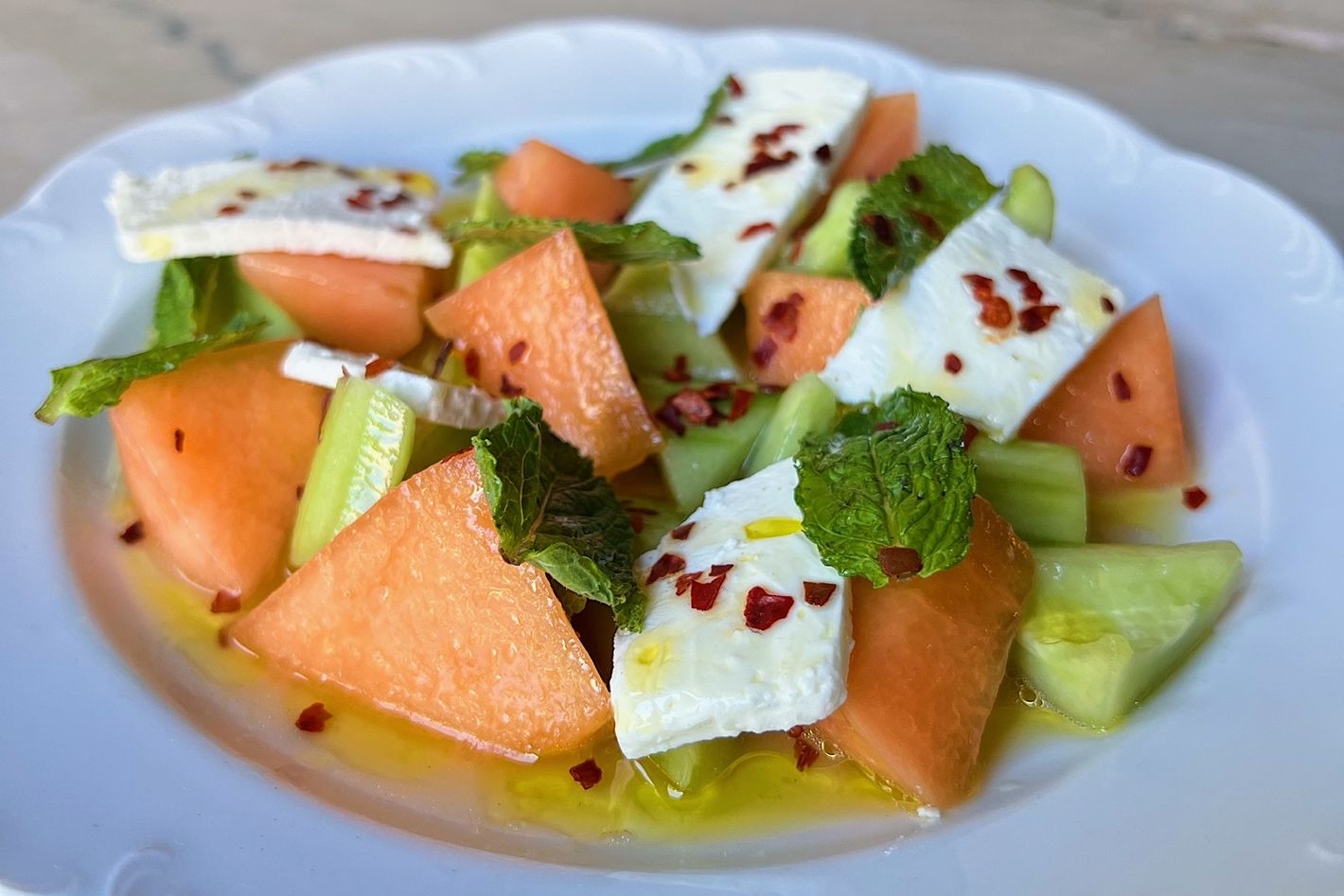when you want, where you want.
It’s the Summer of the Status Melon
 Photo: Patricia Howard/Courtesy of Lord's
Photo: Patricia Howard/Courtesy of Lord's
In the most recent issue of the magazine, our critic Matthew Schneier reviews Smithereens in the East Village. There is a lot to like about both the review and the restaurant (they serve Moxie!), but among everything Matthew mentions, one dish in particular stuck out to me: “Thin slices of mild sea bream are lovely with sweet, musky tiles of Zerbinati melon — the Alfa Romeo of cantaloupes.” Sounds good! But I noticed it mostly because I’ve been seeing these goddamn melons absolutely everywhere.
It’s a difficult name to miss on menus: They’re turned into candy-sweet sorbet at I Cavallini. Served as a summery cucumber-and-feta salad at Lord’s. Shingled onto some tuna up at Saga and whizzed into a dressing at Penny.
These are not, you might be surprised to learn, some Greenmarket-darling fruit fetishized by locavore chefs. They come from Lombardy — imported by Natoora — and are grown by Oscar Zerbinati, a farmer whose dedication to these things is so extreme that he “applies a chalk-and-gravel-based sunscreen” to his fruit to help protect it from the harsh Italian sun.
“They have an incredibly soft texture, and they’re incredibly juicy,” says Lord’s chef, Ed Szymanski. “And they’re very sweet with a depth of flavor — the Zerbinatis have an umami backnote to them so it isn’t just sugar water.” (There is one downside, he adds. “They’re incredibly expensive.’)
These are not just an ingredient. They are gifts from the earth, the soil in which they’re grown enriched by both the River Po and the divine hand of Ceres herself. But are they really so much better than humble American melons? Well, it helps that the season for Zerbinatis begins before ours. But this time of year, even Szymanski says local melons might be comparable.
I got a sugar cube from Phillips Farms in New Jersey the other weekend that was like someone had squeezed a full-size cantaloupe into a super-concentrated version of itself. It was so sweet it made my entire apartment smell like a freshly unwrapped Hi-Chew. Eating it at peak ripeness made me wonder if some of the sugar had started to ferment. No melon I’ve eaten this summer — including Zerbinati — has been as intense, but I do understand that the word “Zerbinati,” as Matthew pointed out in his review, offers real sex appeal on a menu.
“Zerbinati” doesn’t sound like food. It sounds like a little roadster James Dean would’ve owned. A Zerbinati is the car your dad kept in the garage but never let you drive. A Zerbinati is not a melon; it’s forbidden fruit. And it will be out of season very soon, so order it while you see it.
Related
All Rights Reserved. Copyright , Central Coast Communications, Inc.